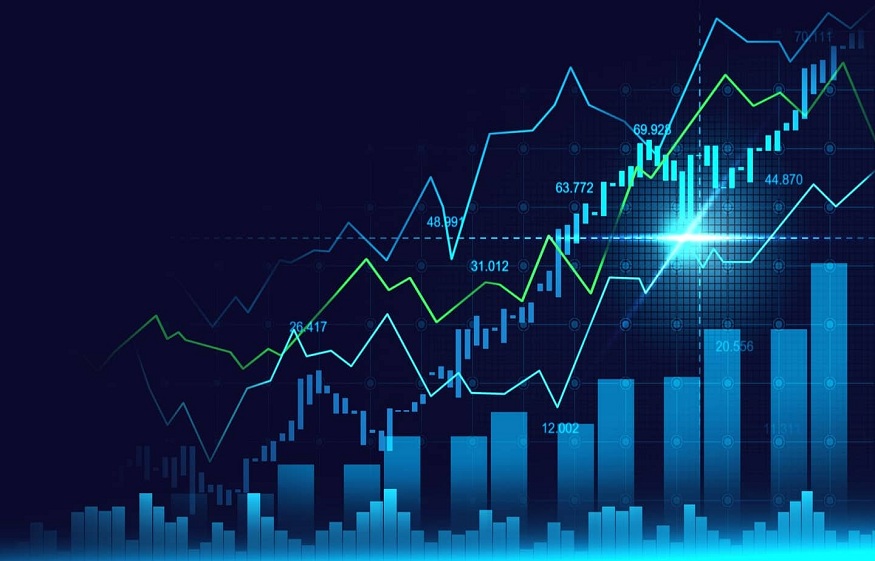Forex trading has witnessed significant changes over the years, driven by technological advancements, shifts in market dynamics, and evolving trader preferences. As experienced traders continue to navigate this dynamic landscape, understanding the trends and strategies that shape the future of forex trading becomes crucial for staying competitive and successful.

Automation and algorithmic trading
One of the most transformative trends in forex trading is the increasing use of automation and algorithmic trading. These technologies leverage complex algorithms to execute trades at high speeds and in large volumes. Algorithmic trading can analyse vast amounts of data and execute trades based on predefined criteria, reducing the need for manual intervention. This trend enhances the speed and efficiency of trading and provides traders with opportunities for better risk management.
However, experienced traders need to approach algorithmic trading with caution. While these systems offer benefits, they also come with risks. A malfunctioning algorithm can result in significant losses. Therefore, traders should thoroughly test and monitor their algorithms and have contingency plans to handle unexpected situations.
Embracing artificial intelligence and machine learning
Forex trading has witnessed significant advancements with the rise of Artificial Intelligence (AI) and Machine Learning (ML). These cutting-edge technologies have revolutionised trading strategies, empowering traders with powerful AI tools capable of analysing vast datasets, detecting patterns, and making predictions with unparalleled accuracy. Moreover, Machine Learning algorithms possess the unique ability to adapt swiftly to changing market conditions, enhancing decision-making processes.
Experienced traders can leverage AI and ML for various purposes. Sentiment analysis tools can provide insights into market sentiment, helping traders make informed decisions. Pattern recognition algorithms can identify trends and potential trading opportunities. However, it’s important to note that while AI can enhance decision-making, it’s not a substitute for human judgement. Successful traders integrate AI as a supplementary tool in their trading strategies, combining it with their expertise.
Global macro trends and geopolitical events
The forex market is susceptible to global macroeconomic trends and geopolitical events. Experienced traders recognize the impact of factors like interest rate decisions, economic indicators, and political developments on currency values. By staying attuned to these trends, traders can capitalise on market movements.
Geopolitical events, such as trade negotiations, elections, and geopolitical tensions, can cause significant volatility in currency pairs. Experienced traders monitor these events and employ strategies to manage risk during periods of heightened uncertainty. Diversification, setting stop-loss orders, and reducing position sizes are some approaches traders may take to navigate volatile times.
Evolving risk management strategies
Risk management remains a cornerstone of successful forex trading. Experienced traders adapt their risk management strategies as the market evolves to address new challenges. One trend is the increasing use of advanced risk management tools and techniques. These include options, derivatives, and sophisticated order types that help traders limit potential losses and protect profits.
Experienced traders are mindful of overleveraging. While leverage can amplify potential gains, it also magnifies losses. Traders are increasingly focused on maintaining a healthy risk-to-reward ratio, ensuring that potential losses are manageable and do not jeopardise their overall trading capital.
Sustainable and ethical trading practices
There has been a growing emphasis on sustainable and ethical trading practices within the forex market in recent years. Experienced traders recognize the significance of environmental, social, and governance (ESG) considerations in their decision-making. This trend involves evaluating the impact of trading activities on environmental sustainability, social responsibility, and corporate governance. Traders who align their strategies with ESG principles contribute to a more responsible financial ecosystem and position themselves to capitalise on the evolving preferences of investors and consumers.
Experienced traders can integrate ESG considerations by selecting currency pairs from countries with strong ESG policies, avoiding those with unsustainable practices, and engaging in socially responsible investment approaches. By aligning trading practices with broader ethical and sustainability goals, traders can enhance their reputation, attract socially conscious investors, and contribute to positive change.
Embracing the future of forex trading
The future of forex trading offers a range of exciting opportunities and challenges for experienced traders. By staying ahead of technological advancements, embracing AI and automation, and adopting innovative risk management strategies, traders can adapt to the changing landscape and thrive in a highly competitive environment. Integrating global macro trends, understanding geopolitical influences, and embracing sustainable and ethical practices can provide traders with a holistic and well-rounded approach to navigating the evolving world of forex trading.
While the landscape may continue to transform, the core principles of informed decision-making, disciplined risk management, and a commitment to ongoing education remain the pillars of success for experienced forex traders.






Leave a Reply
You must be logged in to post a comment.